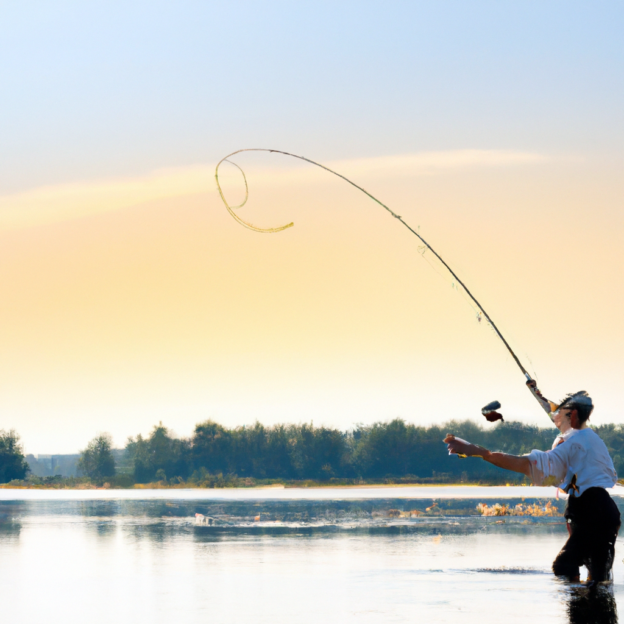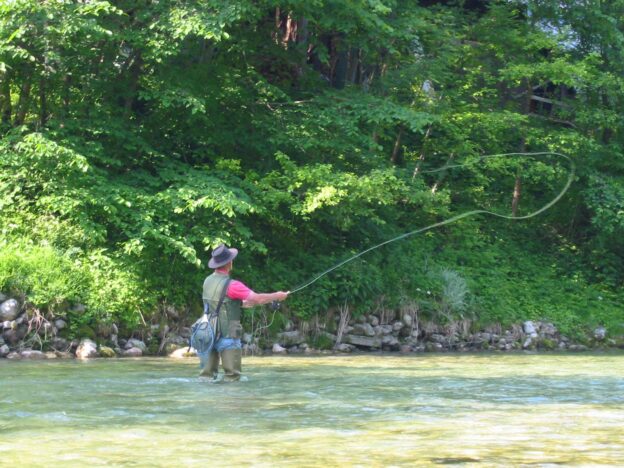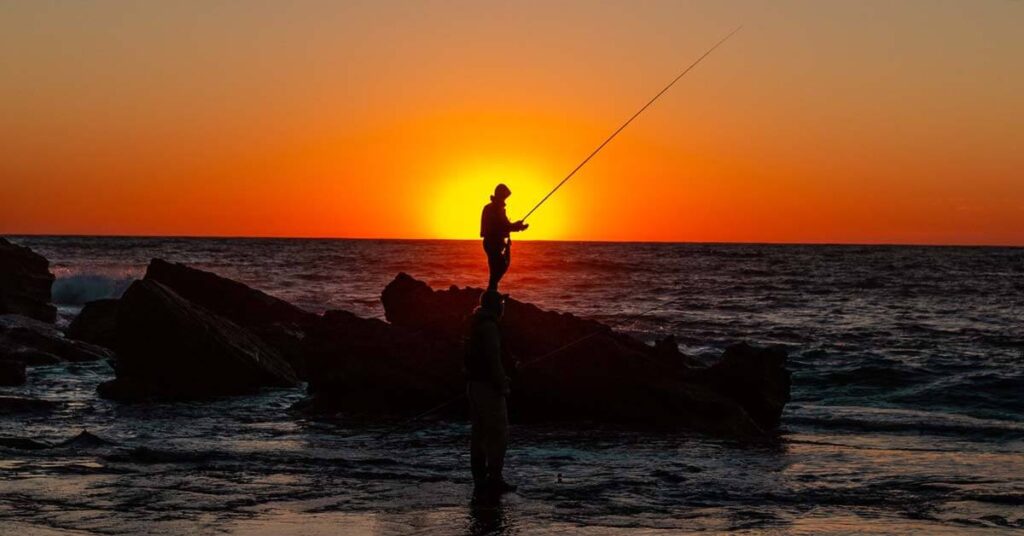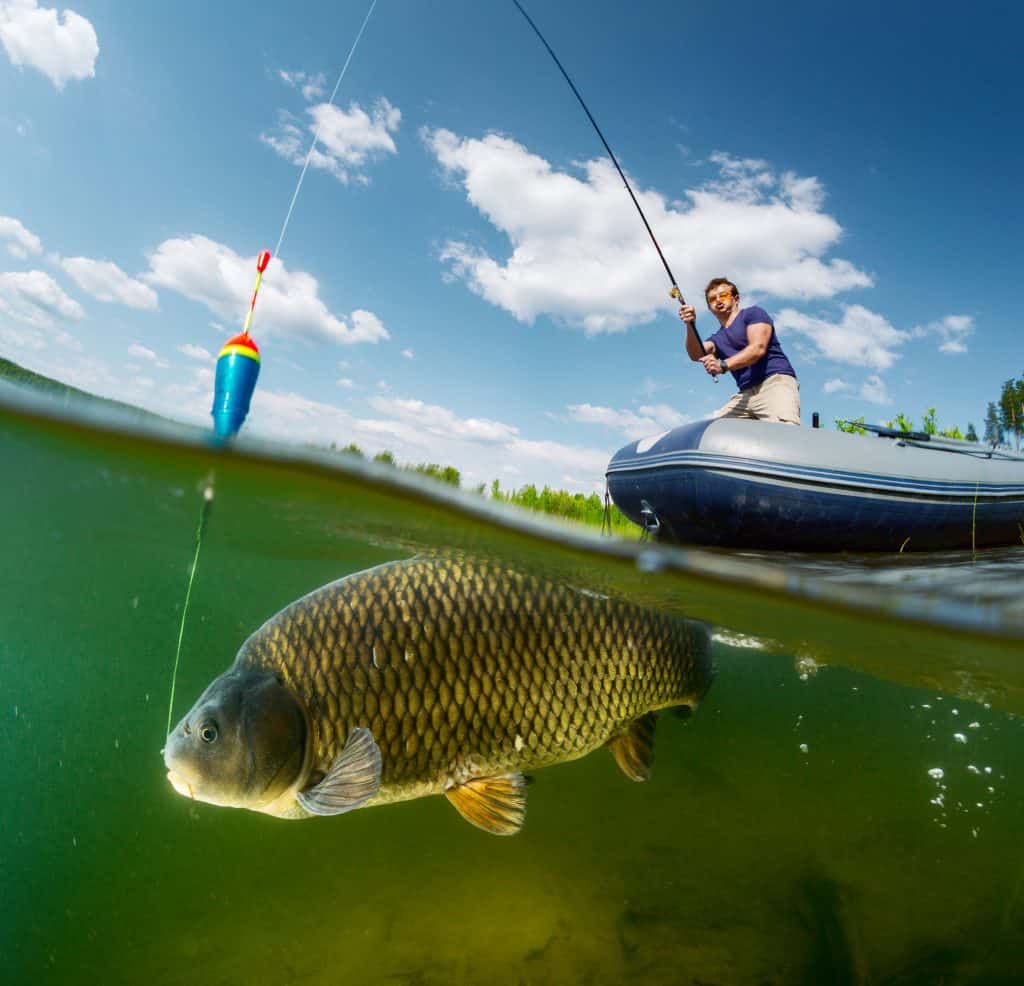Imagine escaping the hustle and bustle of everyday life, surrounded by nature’s serenity, with only the sound of rushing water and the excitement of a catch. This is the beauty of fly fishing. It’s not just a hobby, but a passion that offers countless rewards. Whether you’re a beginner or a seasoned angler, join us as we explore why fly fishing is undoubtedly the best outdoor activity for those seeking solace, thrill, and a deeper connection with the natural world. Get ready to reel in the reasons why fly fishing surpasses all other pastimes!
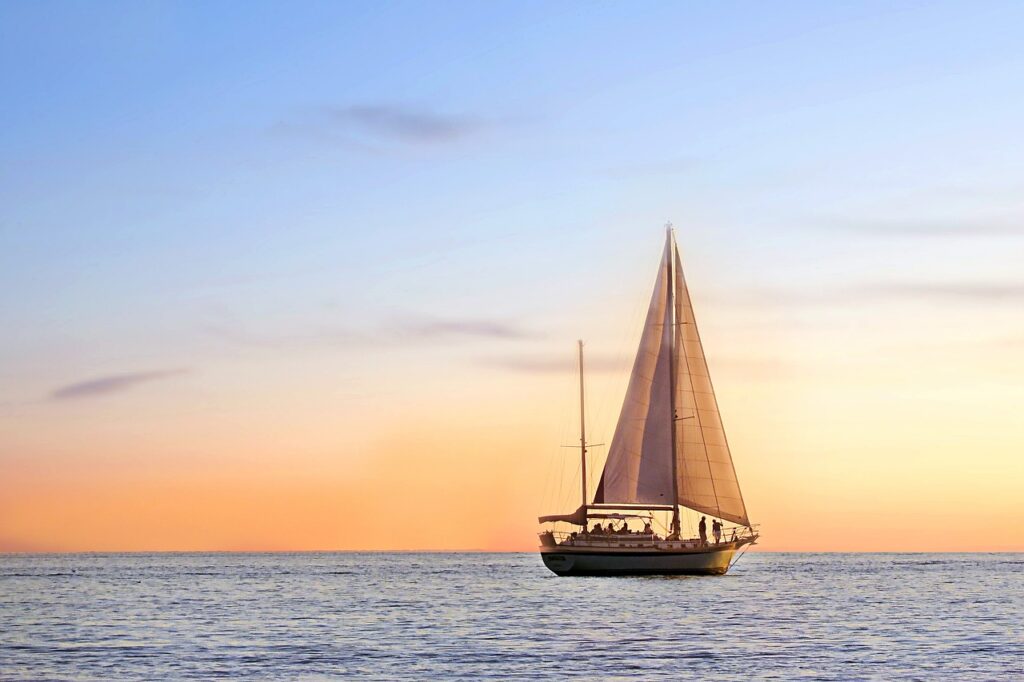
This image is property of pixabay.com.
Physical Benefits of Fly Fishing
Improves cardiovascular health
Fly fishing is an excellent activity for improving cardiovascular health. When you cast your fly rod and reel in your line, you engage in repetitive motion that gets your heart pumping. It’s a low-impact exercise that still provides a great workout for your heart and lungs. By regularly engaging in fly fishing, you can strengthen your cardiovascular system, improve blood circulation, and reduce the risk of heart disease.
Increases strength and endurance
Fly fishing requires strength and endurance, especially when battling against the resistance of the water and reeling in a fish. Casting the fly rod repeatedly helps to build arm and shoulder muscles. Additionally, wading through rivers or hiking to fishing spots improves leg strength and overall endurance. With regular practice, you’ll find yourself becoming stronger and more capable of handling the physical demands of fly fishing.
Enhances coordination and balance
Fly fishing is a sport that requires precise and coordinated movements. You need to synchronize your casting, line control, and landing techniques to be successful. As you practice fly fishing, you’ll develop better hand-eye coordination and fine motor skills. You’ll also improve your balance and stability, especially when wading in fast-moving rivers or on uneven terrain. These enhanced coordination and balance skills can benefit you not only in fishing but also in everyday activities.
Mental Benefits of Fly Fishing
Reduces stress and anxiety
One of the most significant mental benefits of fly fishing is its ability to reduce stress and anxiety. When you immerse yourself in the tranquility of nature, surrounded by the soothing sounds of flowing water and chirping birds, your stress levels naturally decrease. The rhythmic casting and the focused concentration required in fly fishing serve as effective mindfulness techniques, allowing you to let go of your worries and find peace in the present moment.
Promotes mindfulness and relaxation
Fly fishing is a mindful activity that promotes relaxation and mental wellbeing. As you focus on your casting technique, reading the water, and observing the natural surroundings, you enter a state of mindfulness. This state of focused awareness helps to quiet the mind, reduce mental chatter, and relieve stress. Fly fishing provides a unique opportunity to disconnect from the hustle and bustle of daily life and find solace in the simplicity of nature.
Boosts mental clarity and focus
When you engage in fly fishing, you must stay present and focused on the task at hand. This level of concentration required helps to sharpen your mental clarity and improve your ability to focus. By channeling your attention into the intricacies of fly fishing, you can temporarily set aside worries, distractions, and mental fatigue. The meditative aspect of fly fishing allows you to clear your mind, improve cognitive function, and enhance overall mental wellbeing.
Connection with Nature
Opportunity to appreciate natural beauty
Fly fishing provides a unique opportunity to immerse yourself in nature and appreciate its beauty. Whether you’re standing in a pristine river or casting your line on a picturesque lake, you’ll be surrounded by breathtaking landscapes and awe-inspiring views. The serenity of the natural environment and the vibrant colors of the flora and fauna create a sense of wonder and appreciation. Through fly fishing, you can cultivate a deeper connection with the natural world and develop a greater understanding of its wonders.
Immerse in tranquil environments
One of the greatest joys of fly fishing is the opportunity to escape to tranquil environments. Whether you’re wading in a quiet river or sitting by a peaceful lake, these serene settings provide a respite from the noise and chaos of everyday life. The gentle sounds of flowing water, the rustle of leaves, and the chirping of birds create a soothing ambiance that helps to calm the mind and uplift the spirit. Fly fishing allows you to immerse yourself in nature’s tranquility, providing a much-needed break from the fast-paced modern world.
Learn about aquatic ecosystems
By engaging in fly fishing, you have the chance to learn about and appreciate the intricacies of aquatic ecosystems. As you observe fish behavior, study water currents, and identify various aquatic insects, you’ll gain a deeper understanding of these fragile ecosystems. Fly fishing encourages environmental awareness and teaches the importance of conserving and preserving aquatic habitats. Through this connection with nature, you can become an advocate for protecting our rivers, lakes, and streams for future generations.
Sense of Adventure and Exploration
Discovering new fishing spots
Fly fishing offers endless opportunities for exploration and adventure as you seek out new fishing spots. Whether it’s exploring a remote mountain stream or venturing to an uncharted lake, each fishing excursion brings the excitement of discovering new and potentially fruitful fishing grounds. The thrill of not knowing what lies ahead and the anticipation of what you might catch creates a sense of adventure and keeps the passion for fly fishing alive.
Exploring remote and untouched areas
Fly fishing often takes you to remote and untouched areas that are inaccessible to most. These pristine locations allow you to escape the noise and distractions of everyday life and get closer to untouched wilderness. Trekking through untouched landscapes, wading through crystal-clear rivers, and feeling the crisp air on your face as you cast your line all contribute to the sense of exploration and awe that fly fishing provides. It’s a chance to connect with nature on a deeper level and experience the beauty of secluded and unspoiled places.
Cultivating a spirit of adventure
Fly fishing cultivates a spirit of adventure within you, encouraging you to venture out into the unknown and embrace new experiences. Whether you’re embarking on a solo fishing trip or joining a group of fellow anglers, each fishing expedition presents its own set of challenges and rewards. The unpredictability of fly fishing and the constant need to adapt to changing conditions help develop resilience, adaptability, and a sense of adventure that extends beyond fishing and into other aspects of life.

This image is property of pixabay.com.
Sustainable and Eco-friendly
Catch and release practices
Fly fishing is known for promoting catch and release practices, which are essential in maintaining fish populations and preserving the environment. By catching a fish and then releasing it unharmed back into the water, you contribute to the sustainability of fish stocks, ensuring future generations can also enjoy the thrill of fly fishing. This conservation-minded approach reduces the impact on fish populations and helps maintain the delicate balance of aquatic ecosystems.
Minimal impact on fish populations
Compared to other forms of fishing, fly fishing has minimal impact on fish populations. The use of artificial flies and lures reduces the likelihood of injuring or harming fish during the catch and release process. Additionally, the techniques employed in fly fishing, such as casting with precision and using barbless hooks, further minimize harm to fish and increase their chances of survival. By adopting these eco-friendly practices, fly fishermen can actively contribute to the long-term health and sustainability of fish populations.
Respecting and preserving the environment
Fly fishing promotes a deep respect for the environment and encourages anglers to be stewards of nature. Anglers who embrace fly fishing tend to have a strong sense of environmental responsibility, understanding the importance of preserving natural habitats and water quality. By participating in river clean-up projects, practicing proper waste disposal, and educating others on the importance of environmental conservation, fly fishermen actively contribute to the preservation of our ecosystems.
Versatility and Options
Various fishing techniques and styles
Fly fishing offers a wealth of fishing techniques and styles to suit individual preferences and fishing conditions. Whether you prefer nymphing, dry fly fishing, or streamer fishing, there’s a technique that can cater to your fishing goals. The versatility of fly fishing allows you to adapt to different water types, fishing seasons, and target fish species. This variety ensures that every fishing trip is unique and exciting, allowing you to continuously learn and improve your skills.
Adaptable to different water types
Fly fishing is adaptable to different types of water, making it suitable for a wide range of fishing environments. Whether you’re fishing in rivers, streams, lakes, or saltwater flats, fly fishing can be effectively practiced in each. The ability to adapt your techniques and fly patterns to suit specific water conditions and target species adds to the versatility and appeal of fly fishing. Regardless of the water type, fly fishing provides a rewarding and engaging experience.
Suitable for all skill levels
Fly fishing is a sport that can be enjoyed by anglers of all skill levels, from beginners to experienced veterans. With proper instruction and practice, anyone can grasp the basics and start fly fishing. Whether you’re casting your first line or perfecting more advanced techniques, fly fishing offers a lifelong journey of learning and growth. It’s a sport that accommodates beginners’ learning curves while continually challenging experienced anglers to improve their skills and expand their knowledge.

This image is property of pixabay.com.
Camaraderie and Social Connection
Opportunity to bond with fellow anglers
Fly fishing provides a great opportunity to bond with fellow anglers who share a love for the sport. Whether you’re fishing with friends, family, or joining a guided fly fishing trip, the shared experience of being out on the water creates a strong sense of camaraderie. As you swap fishing stories, share tips and techniques, and support each other in the pursuit of landing a prized fish, you’ll develop deep and lasting connections with like-minded individuals.
Sharing fishing stories and experiences
One of the joys of fly fishing is the opportunity to share fishing stories and experiences with other anglers. Whether you’ve caught a record-breaking fish or simply enjoyed a memorable day on the water, these stories become cherished moments that you can relive and share with fellow fishing enthusiasts. The camaraderie built through sharing these stories helps to strengthen bonds and create a sense of belonging within the fly fishing community.
Participating in fly fishing communities
Fly fishing communities provide valuable support and resources for anglers of all levels. From joining local fishing clubs to participating in online forums and social media groups, fly fishermen have numerous avenues to connect with others who share their passion. These communities offer a platform for sharing knowledge, seeking advice, organizing fishing trips, and fostering a sense of belonging. Participating in fly fishing communities further enriches the overall fly fishing experience and provides opportunities for lifelong friendships.
Learning and Personal Growth
Continuous learning about fish behavior
Fly fishing is a never-ending learning experience, especially when it comes to understanding fish behavior. To be successful in fly fishing, you need to understand the feeding patterns, habitat preferences, and seasonal movements of different fish species. This ongoing education about fish behavior enhances your ability to read the water, select the right flies, and adapt your fishing techniques. Every fishing trip becomes an opportunity to expand your knowledge and deepen your connection with fish and their environment.
Problem-solving and strategy development
Fly fishing presents a range of challenges that require problem-solving and strategy development. From analyzing water currents to selecting the right fly pattern and adjusting your casting technique, every aspect of fly fishing requires critical thinking and adaptability. By honing these problem-solving skills on the water, you enhance your ability to tackle challenges in other areas of life. Fly fishing teaches you perseverance, lateral thinking, and the value of developing strategies to overcome obstacles.
Building patience and persistence
Fly fishing is a patient angler’s game, and it teaches you the value of persistence and perseverance. Success in fly fishing often requires waiting patiently for the right moment, casting accurately and repeatedly, and staying focused even in the face of adversity. Each missed cast or failed catch presents an opportunity to practice patience, learn from mistakes, and continue striving for improvement. The patience and persistence developed through fly fishing can positively influence other aspects of your life, cultivating resilience and determination.

Escape from Technology and Digital World
Unplugging from screens and social media
In today’s digital age, it’s becoming increasingly important to unplug from screens and social media for our mental and emotional wellbeing. Fly fishing offers a perfect opportunity to disconnect from technology and reconnect with nature. Without the distractions of notifications, emails, and social media updates, you can fully immerse yourself in the present moment and devote your attention to the beauty of the natural surroundings. Fly fishing allows you to step away from the pressures of the digital world and embrace a slower-paced, more fulfilling activity.
Connecting with nature without distractions
Fly fishing allows you to connect with nature in its purest form, free from the distractions of modern-day life. By leaving behind the noise and stimulation of technology, you can fully engage your senses and experience the wonders of the natural world. The absence of constant notifications and digital distractions enables you to appreciate the subtle sounds, sights, and smells of nature. Fly fishing provides an opportunity to truly connect with the environment, creating a sense of peace and fulfillment that few other activities can offer.
Immersing in a simpler and slower-paced activity
In a world that often feels fast-paced and overwhelming, fly fishing offers a simpler and slower-paced alternative. As you stand in the water, focusing on your casting technique and observing the natural surroundings, the world slows down around you. The rhythmic motion of casting and the patience required for fly fishing allow you to escape the rush of everyday life and find solace in a more tranquil, intentional activity. Fly fishing helps you appreciate the beauty of slowing down, embracing simplicity, and living in the present moment.
Time for Reflection and Contemplation
Opportunity for self-reflection and introspection
Fly fishing provides a sanctuary for self-reflection and introspection. The peacefulness of the natural surroundings, combined with the rhythmic casting and repetitive movements, creates a meditative atmosphere. As you cast your line and wait for a bite, you have time to contemplate your thoughts, reflect on life’s challenges, and gain clarity on personal matters. Fly fishing offers a dedicated space for introspection, allowing you to reconnect with your inner self and find answers or insights that may elude you amidst the noise of daily life.
Finding solace and peace in nature
For many fly fishermen, the solitude and serenity of fly fishing provide an escape from the noise and stress of the outside world. Nature has a way of calming the mind and soothing the soul, offering a much-needed respite from the demands and pressures of everyday life. Whether it’s the sound of a gently flowing river or the sight of a majestic mountain backdrop, fly fishing allows you to find solace and inner peace in the embrace of nature’s beauty. The moments of tranquility and stillness in fly fishing can be transformative, rejuvenating both mind and spirit.
Enjoying moments of solitude and serenity
Fly fishing provides a unique opportunity for moments of solitude and serenity. Many anglers find solace in the solitude of being out on the water, away from the noise and distractions of crowds. Whether you’re fishing alone or in the company of a trusted fishing companion, these moments of quiet contemplation allow you to connect with yourself and your surroundings on a deeper level. Fly fishing offers a chance to escape the hectic pace of life and enjoy the simplicity of being present in the natural world.

